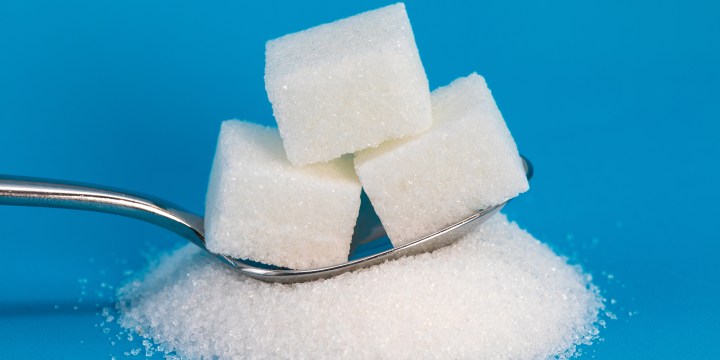LEVY PROPOSALS
Sugar industry calls for freeze on sugar tax, asks government for a sweeter deal

The South African Sugar Association has appealed to the government ahead of the Budget next week to freeze the health promotion levy on sugary beverages (such as Coke) — the sugar tax, as it is better known — for the next three to five years.
First introduced in 2018, the tax is currently 2.21 cents per gram and is applied to non-alcoholic sugary beverages (excluding fruit juices) that contain more than four grams of sugar per 100ml. The tax was meant to increase to 2.31 cents per gram from April 2022, but the inflationary increase was suspended for 12 months to allow for consultation with the sugar industry.
As the date for the national Budget grows closer, the industry is becoming increasingly anxious since no consultation has taken place in the past year.
Proposals put forward so far for changes in the sugar tax include:
- An inflationary-linked adjustment;
- A lowering of the threshold to 2g per 100ml;
- A removal of the threshold; and
- An expansion of the sugar tax to other food products.
Sandy Jackson, head of agri socioeconomics at the Bureau for Food and Agricultural Policy, says if the reach and extent of the sugar tax are extended, refined sugar sales will decline by 160,000 tons over two years, decreasing industry turnover by more than R600-million a year and leading to the potential loss of 1,000 jobs.
A Sugar Association survey shows that an inflationary adjustment is unlikely to lead to significant reductions in demand, as most manufacturers have already reformulated their drinks to meet the current minimum threshold of 4mg of sugar per 100ml.
Visit Daily Maverick’s home page for more news, analysis and investigations
“Any increase to the HPL or lowering of the threshold will have a disastrous impact on the entire sugar cane chain. We understand the sugar tax is here to stay, but if there are no changes, it will give the industry time to continue with our diversification journey,” says Trix Trikam, executive director at the South African Sugar Association (Sasa).
“There’s a lot of research needed to identify feasible alternative products that we can move our export tonnage into. The opportunities being investigated include sustainable aviation fuel, bioplastics and food additives.”
Sasa says an estimated 1% ethanol requirement in South Africa’s petrol fuel would be equivalent to 180,000 tons of exported sugar. While investment into biofuels will likely continue, South Africa has to play catch-up – Tanzania, Mozambique and Zimbabwe have already opened distillation plants.
Why do we have a sugar tax?
The main aim of the sugar tax was to reduce sugar consumption.
A 2021 study by Prof Karen Hofman and her colleagues at the South African Medical Research Council and Wits Centre for Health Economics, found that once the sugar tax was introduced, purchases of sugar-sweetened beverages declined by 29%, while sugar intake consumption decreased by 51%.
These are encouraging statistics, more so given the obesity problem that the country faces, with half of South African adults either overweight or obese.
Michael Boachie, a senior researcher at Wits University, says overweight and obesity problems exact an annual R33-billion toll on the country’s health system.
“This represents 15.38% of government health expenditure and is equivalent to 0.67% of GDP. In South Africa, the biggest share of the R33-billion ($1.9-billion) annual cost comes from treating diabetes (R19.86-billion). Cardiovascular disease (R8.87-billion) had the second biggest share.
“These costs are, in turn, mainly driven by the cost of medication and hospitalisation,” he says.
Boachie warns that the R33-billion is likely an underestimation of the economic cost, as his study did not account for the indirect costs of productivity losses resulting from absenteeism, or premature death due to poor health.
Cost of the civil unrest and floods
According to Sasa, the industry currently brings in R18-billion in revenue, with 65,000 direct job opportunities and 270,000 indirect jobs.
Trikam says the industry has lost around R1.2-billion of revenue per season since the sugar tax was first introduced and blames the tax for the closure of two sugar mills in Darnall and uMzimkulu.
There are 10 sugar mills left in KwaZulu-Natal, but civil unrest in 2021 and floods in 2022 have exacted a heavy price, costing cane growers more than R100-million in revenue.
During the civil unrest, all 10 KZN sugar mills had to be closed; two sugar warehouses holding 12,000 tons of sugar were looted, and 561,200 tons of commercial, land reform and small-scale growers’ cane were burnt.
The KZN floods of 2022 resulted in a further R223-million worth of damage to cane fields and farm infrastructure. BM/DM



















This is not to mention the damage caused to manufacturers of sugar confectionery due to excessive sugar prices. The pricing policy of sugar is based on Dollar Based Reference Pricing, so we live and trade in Rands but our prices are based on US Dollars and with our ever fluctuating currency, manufacturers cannot compete against other countries who manufacture sweets and chocolates.